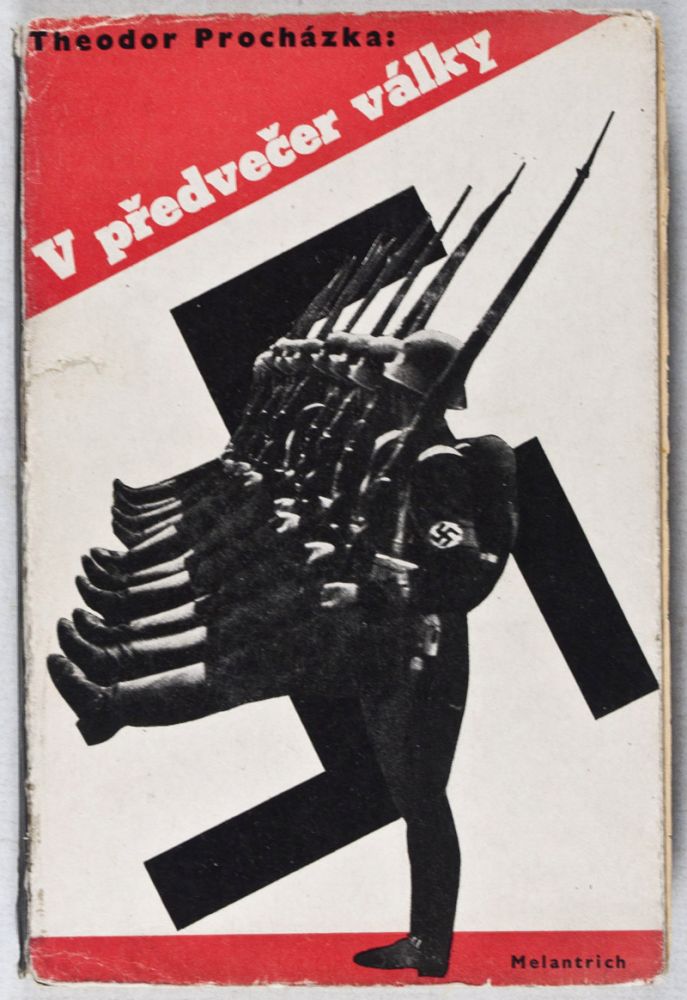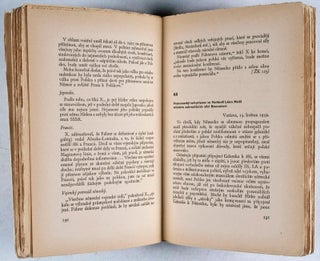V predvecer války: Z anglickych a francouzskych dokumentu
Prague: Melantrich, 1945. First edition. Paperback. Quarto. 313, 11pp. Uncut. Original wrappers featuring a striking photomontage front cover by Karel Teige*. Title page in red and black lettering. First edition of this book relating the outbreak of World War II through British and French diplomatic documents. Moderate shelf-wear. Spine creased, with head of spine partly chipped. Book block spliting. Some pages detached but present. Moderate age-toning throughout. Text in Czech. Wrappers and interior in overall fair to good condition. fair to g. Item #37348
* Karel Teige (1900-1951) was the major figure of the Czech avant-garde movement Devětsil (Butterbur) in the 1920s, a graphic artist, photographer, and typographer. Teige also worked as an editor and graphic designer for Devětsil's monthly magazine ReD (Revue Devětsilu). With evidently endless energy, Teige introduced modern art to Prague. Devětsil-sponsored exhibitions and events brought international avant-garde figures like Le Corbusier, Man Ray, Paul Klee, Vladimir Mayakovsky, and Walter Gropius, among many others, to lecture and perform in Prague. Teige interpreted their work, sometimes literally, for the Czech audience. In his 1935 Prague lecture, André Breton paid tribute to his "perfect intellectual fellowship" with Teige and Nezval: "Constantly interpreted by Teige in the most lively way, made to undergo an all-powerful lyric thrust by Nezval, Surrealism can flatter itself that it has blossomed in Prague as it has in Paris." Although not an architect, Teige was an articulate and knowledgeable architecture critic, an active participant in CIAM, and friends with Hannes Meyer, the second director of the Bauhaus. Teige and Meyer both believed in a scientific, functionalist approach to architecture, grounded in Marxist principles. In 1929 he famously criticized Le Corbusier's Mundaneum project (planned for Geneva but never built) on the grounds that Corbusier had departed from rational functionalism, and was on his way to becoming a mere stylist. Teige believed that 'the only aim and scope of modern architecture is the scientific solution of exact tasks of rational construction.' After welcoming the Soviet army as liberators, Teige was silenced by the Communist government in 1948. In 1951 he died of a heart attack, said to be a result of a ferocious Soviet press campaign against him as a 'Trotskyite degenerate,' his papers were destroyed by the secret police, and his published work was suppressed for decades.
Price: $375.00


